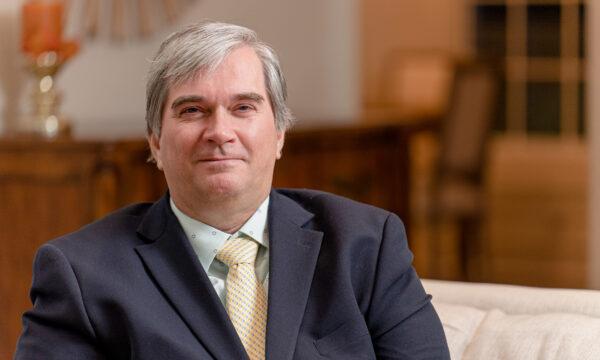As compelling evidence points to the Chinese regime’s practice of live organ harvesting on prisoners of conscience, a group of experts concludes that the regime intends to eradicate Falun Gong adherents.
Falun Gong, also known as Falun Dafa, is a spiritual discipline consisting of meditative exercises and moral teachings. It grew in popularity during the 1990s leading to up to 100 million people practicing in China by the decade’s end. Perceiving this to be a threat, the Chinese Communist Party (CCP) launched a nationwide campaign in 1999 seeking to eradicate the practice.
Millions of Falun Gong adherents have been detained in jails and detention facilities across the country, where they are subjected to forced labor, torture, and forced organ harvesting.
Dr. Torsten Trey, founder of the nonprofit group Doctors Against Forced Organ Harvesting (DAFOH), said the practice of forced organ harvesting of living Falun Gong adherents is “the most and best investigated crime against humanity of a concealed crime that is not being discussed in the mainstream media.

“By doing so, it is more difficult to detect. And this is a critical aspect,” he added.
According to Trey, his investigation aimed to determine the intent of the CCP’s pursuit of its grisly practice.
He said the lucrative selling of organs for transplant benefits mainly the doctors who perform the operations.
“So that it becomes a self-propelling mechanism and machinery to reach industrial level numbers of transplants,” he said.
But he believes the Chinese regime pursues a different end goal.
CCP Is ‘Weaponizing Organ Harvesting’
“The Communist Chinese Party is indeed weaponizing organ harvesting to inflict genocide against its unwanted,” said David Matas, a Canadian international human rights lawyer and co-author of “Bloody Harvest: The Killing of Falun Gong for their Organs.”
After considering evidence from more than 50 witnesses, the panel determined that forced organ harvesting had taken place for an extended time on a substantial scale, with Falun Gong practitioners being the primary source of organs.
Chair of the tribunal, Sir Geoffrey Nice QC, said in a judgment delivered on June 17 at the time in London that based on an analysis of infrastructure and capacity at 146 Chinese hospitals, a conservative estimate is that 60,000 to 90,000 transplant operations are conducted each year. The number is vastly greater than the figures suggested by the Chinese regime of 10,000 to 20,000 per year.
“Victims of institutionalized forced organ harvesting come from jails and detention centers. They are not kidnapped by hospitals off the streets,” Matas said.
Measures to Curb the Crime
Matas further characterized the atrocity as “a transnational crime,” noting that some countries had introduced legislation against transplant tourism in China.“The U.S. is not one of them,” he said, further suggesting that the United States should immediately “criminalize transplanters going into China.”
Dr. G. Weldon Gilcrease, vice director of DAFOH, urged for a significant decoupling from China “with the knowledge and the awareness of forced organ harvesting and criminal activity happening.”
“We need to acknowledge … that we are dealing with a criminal state, and we need a massive decoupling both at the individual level all the way up to the institutional level from China,” Gilcrease said.
Matas chimed in, saying that ethical standards concerning the atrocity must be set up.
“Doctors should be telling patients: if you are going to China for a transplant, someone may be killed for their organs. And that should be an ethical standard, and it isn’t in most countries. And so what we need is to confront the problem head-on and go through all of the various remedies that are available and implement the whole range,” Matas said.
Trey noted that as we live “in a world that is interconnected with social media,” it allows immediate access to any information. And “willful blindness today has a different meaning than it had in the past,” he added.
“I think that this willful blindness needs to be reframed as supporting the crime against humanity.”




